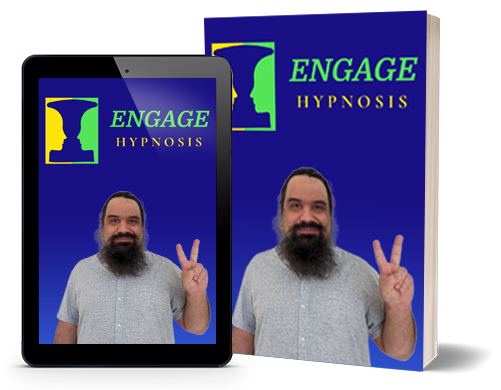Boost Your Resilience As An Expat & Digital Nomad
When it comes to living in the world I have accumulated a unique set of experiences by living in 5 countries, with 4 different languages, while personally speaking only 2.
Here are my insights :)
Blog articles on how to navigate the mental challenges of your unique journey

The Third Culture Dilemma: Finding Belonging When You Feel at Home Everywhere and Nowhere
As I stood in my childhood neighborhood in Athens, something felt strangely off. The familiar streets now seemed foreign, the cultural nuances I once navigated effortlessly now required conscious thought. After years in Prague, Oviedo, Los Angeles, and Cambridge, I had become a visitor in my own homeland. The moment I realized my home country felt foreign was when I truly understood what it means to belong everywhere and nowhere at once.
This experience—reverse culture shock—is one many of us expats share. And whether I talk with other expats in Greece or in Prague, I regularly encounter individuals struggling with the same question: How can we create a sense of belonging when our identity feels fragmented across multiple cultures and countries?
Understanding the Third-Culture Experience
Third-culture individuals are those who have spent significant time adapting to different cultural environments, creating an identity that's a unique blend of all these experiences. We don't fully belong to our birth culture nor to our adopted cultures—instead, we develop something new, a "third culture" that exists in the spaces between.
When we return "home," reverse culture shock often hits unexpectedly. The alienation, confusion, and nostalgia can be overwhelming. One friend described it as "feeling like a tourist in my own life story." You might find yourself frustrated by cultural norms you once took for granted, or feeling disconnected from old friends whose lives have continued along a more traditional path.
During some of my extended visits to Greece, I discovered I had lost patience with the relaxed Mediterranean approach to time. Meanwhile, my Greek friends couldn't understand my insistence in my acquired Central European punctuality. These small disconnects accumulate, creating an invisible barrier between us and our roots.
The Trap of Seeking a Fixed 'Home'
Many expats fall into the trap of believing they must eventually choose—pick a country, settle down, and commit to one cultural identity. This settlement dilemma creates an ongoing internal conflict: Should I put down roots here? Should I return home? Should I try somewhere new?
This pressure to choose a single "home" often comes from well-meaning friends and family who want certainty about your future plans. It may also come from within, from our human desire for belonging and stability.
Many phrases I hear from clients fundamentally express a feeling like: "I feel like I'm betraying my past self if I settle permanently in another country, but I'm exhausting my present self by constantly planning the next move."
The emotional cost of forcing yourself to "belong" somewhere specific can lead to profound identity confusion. Relationships suffer because potential partners sense your hesitation about committing to a place. Career decisions become complicated by geographical uncertainty.
What if we reframed the concept of "home" itself? Perhaps home isn't a fixed geographical location but a flexible, evolving state of being that travels with you.
Building Resilience in Fluidity
Finding Community in Fluidity
The most successful third-culture individuals I've worked with have found belonging not in a place, but in connections with others who share similar experiences. These communities understand the complexity of your identity without explanation.
In Prague, I've found invaluable support through international professional networks, expat groups focusing on community and mental health, and informal gatherings of "citizens of nowhere." These connections validate our unique experiences and provide a space where our complex identities are not just accepted but celebrated.
Look for communities online and offline where your multinational experience is the norm rather than the exception. You might find them through:
Professional networks with an international focus
Activities & Community spaces that align with your values
Language exchange groups
Expat-focused social media communities
International volunteering opportunities
Cultural centers representing your countries of residence
Accepting the Duality
Accepting this dual nature of identity and belonging is essential for things to run smoothly in the situations many of us expats find ourselves in. Through hypnotherapy, I help clients access the subconscious patterns that allow them to embrace multiple cultural identities. Often, there's an underlying belief that having multiple "homes" means you're somehow less authentic or committed.
Feeling "culturally homeless" is a common element in many people's experiences. Through guided hypnotic work, I have helped people discover they are subconsciously trying to prove their loyalty to their heritage by rejecting aspects of their experiences as citizens of the world. Once they recognize this pattern, they begin to see their multicultural identity as an integrated whole and start the process of reconciling their competing parts.
Mindfulness techniques can help you become aware of when you're resisting parts of your multicultural identity. Notice when you feel shame about your accent in one language, or when you hide certain cultural practices from friends of different backgrounds. These moments of discomfort often reveal where healing can begin.
Embracing Personal Evolution
Every culture you absorb becomes a layer of your identity, not a replacement for what came before. This layered evolution creates a uniquely adaptive perspective on the world.
In my hypnotherapy practice, I encourage clients to visualize their identity as a tree with roots in multiple soils, drawing nourishment from different sources to create something stronger and more resilient than would be possible from a single cultural foundation.
Eventually as citizens of the world we have the invaluable opportunity to forge our unique mosaic of identity that contains gemstones from all of our experiences.
Cultivating Belonging Without Borders
The most profound shift happens when you move from seeking external belonging to cultivating internal belonging. Rather than asking "where do I belong?" start asking "what values, practices, and relationships make me feel grounded regardless of location?"
Through hypnotic exploration, clients often discover that their sense of home is connected to specific activities or states of mind rather than places. For client who had lived in four countries, it was the ritual of Sunday cooking. For another, it was maintaining close connections with a small group of friends scattered across continents.
Cognitive reframing techniques can transform how you perceive your third-culture experience. Instead of seeing yourself as someone who doesn't fully belong anywhere, you might recognize yourself as someone with the rare capacity to connect meaningfully across cultural divides—essentially, a global citizen.
Try this exercise: Write down three situations where your multicultural background gave you an advantage or deeper insight. Perhaps you navigated a cross-cultural business negotiation with ease, or you understood nuances in a film that others missed. Reflecting on these moments reinforces the value of your unique perspective.
Creating Your Personal Third-Culture Rituals
Rituals create a sense of continuity and belonging. As a third-culture individual, you have the opportunity to craft personal rituals that honor all parts of your identity.
For example one can create a morning routine that incorporates elements from each place they have lived. Let's say this can include, Greek coffee brewing methods, English breakfast tea, American productivity practices, and Czech artistic appreciation. This daily ritual helped her feel connected to all parts of her journey simultaneously.
Consider developing personal symbols of "home" that travel with you. These might be physical objects, like this stone from a Greek beach that sits on my desk in Prague. Or they might be practices, like maintaining certain holidays or food traditions regardless of where you live.
Your third-culture mindset offers distinct professional advantages. Research shows that multicultural experience enhances creativity, problem-solving, and empathy—all increasingly valuable skills in our globalized world. By embracing your unique perspective, you transform what once felt like a burden into your greatest strength.
Redefining Belonging as an Expat
Belonging doesn't require choosing a single home or identity. True resilience comes from accepting fluidity—recognizing that you can carry multiple cultures within you while continuing to evolve and absorb new experiences.
As a hypnotherapist working with expats, I've witnessed countless individuals transform their sense of cultural homelessness into a profound appreciation for their unique journey. The question shifts from "Where do I belong?" to "How can I honor all parts of who I am becoming?"
I invite you to reflect: What does belonging mean to you, and how can you cultivate it in your unique journey? How might your definition of home expand beyond geographical boundaries?
If you're navigating the complex emotions of the third-culture experience, know that you're not alone. Together, we can transform the challenges of belonging everywhere and nowhere into your greatest source of strength and connection.
Dr. Orestis Vasilakis is a certified hypnotherapist and coach based in Prague, specializing in helping expats navigate identity, belonging, and transition. With a background spanning Greece, the UK, USA, and Spain, he brings both professional expertise and personal experience to his work with the international community. Book a consultation to explore how hypnotherapy can help you embrace your third-culture identity.

Can a free audio significantly reduce your stress?
The Emotional Recharge Audio
Press the chat bubble to request & find out :)
TESTIMONIALS / SUCCESS STORIES

Steve James

They changed my life and all that. I have improved by lacrosse and basketball game tremendously. I’ve been listening to the recordings from hypnosis sessions before each game, which helps me focus much better than ever before and ignore distractions to the point that I don’t see or hear anything not related to the game.

Dianne Peterson

They changed my life and all that. I have improved by lacrosse and basketball game tremendously. I’ve been listening to the recordings from hypnosis sessions before each game, which helps me focus much better than ever before and ignore distractions to the point that I don’t see or hear anything not related to the game.

Trisha Grey

They changed my life and all that. I have improved by lacrosse and basketball game tremendously. I’ve been listening to the recordings from hypnosis sessions before each game, which helps me focus much better than ever before and ignore distractions to the point that I don’t see or hear anything not related to the game.
TESTIMONIALS / SUCCESS STORIES

Steve James

They changed my life and all that. I have improved by lacrosse and basketball game tremendously. I’ve been listening to the recordings from hypnosis sessions before each game, which helps me focus much better than ever before and ignore distractions to the point that I don’t see or hear anything not related to the game.

Dianne Peterson

They changed my life and all that. I have improved by lacrosse and basketball game tremendously. I’ve been listening to the recordings from hypnosis sessions before each game, which helps me focus much better than ever before and ignore distractions to the point that I don’t see or hear anything not related to the game.

Trisha Grey

They changed my life and all that. I have improved by lacrosse and basketball game tremendously. I’ve been listening to the recordings from hypnosis sessions before each game, which helps me focus much better than ever before and ignore distractions to the point that I don’t see or hear anything not related to the game.

My husband and I are very grateful we found Robert. We were referred to her by our daughter’s child psychologist. Her hypnosis sessions with Teresa have completely changed her life (and our lives): she went from a shut-down, fearful child to an opened-up, happy child. She stopped sleeping in our bedroom and is happy sleeping in her own bedroom. She is no longer afraid of the dark. She enjoys going to school and playing with her friends. We could not be more thrilled with the results of hypnotherapy and we highly recommend Robert to any parent who
worries about their child.
Dianne Loren
Tucson AZ


My husband and I are very grateful we found Robert. We were referred to her by our daughter’s child psychologist. Her hypnosis sessions with Teresa have completely changed her life (and our lives): she went from a shut-down, fearful child to an opened-up, happy child. She stopped sleeping in our bedroom and is happy sleeping in her own bedroom. She is no longer afraid of the dark. She enjoys going to school and playing with her friends. We could not be more thrilled with the results of hypnotherapy and we highly recommend Robert to any parent who
worries about their child.
Dianne Loren
Tucson AZ

Download Your FREE
Audio Course

Download Your FREE eBook!






